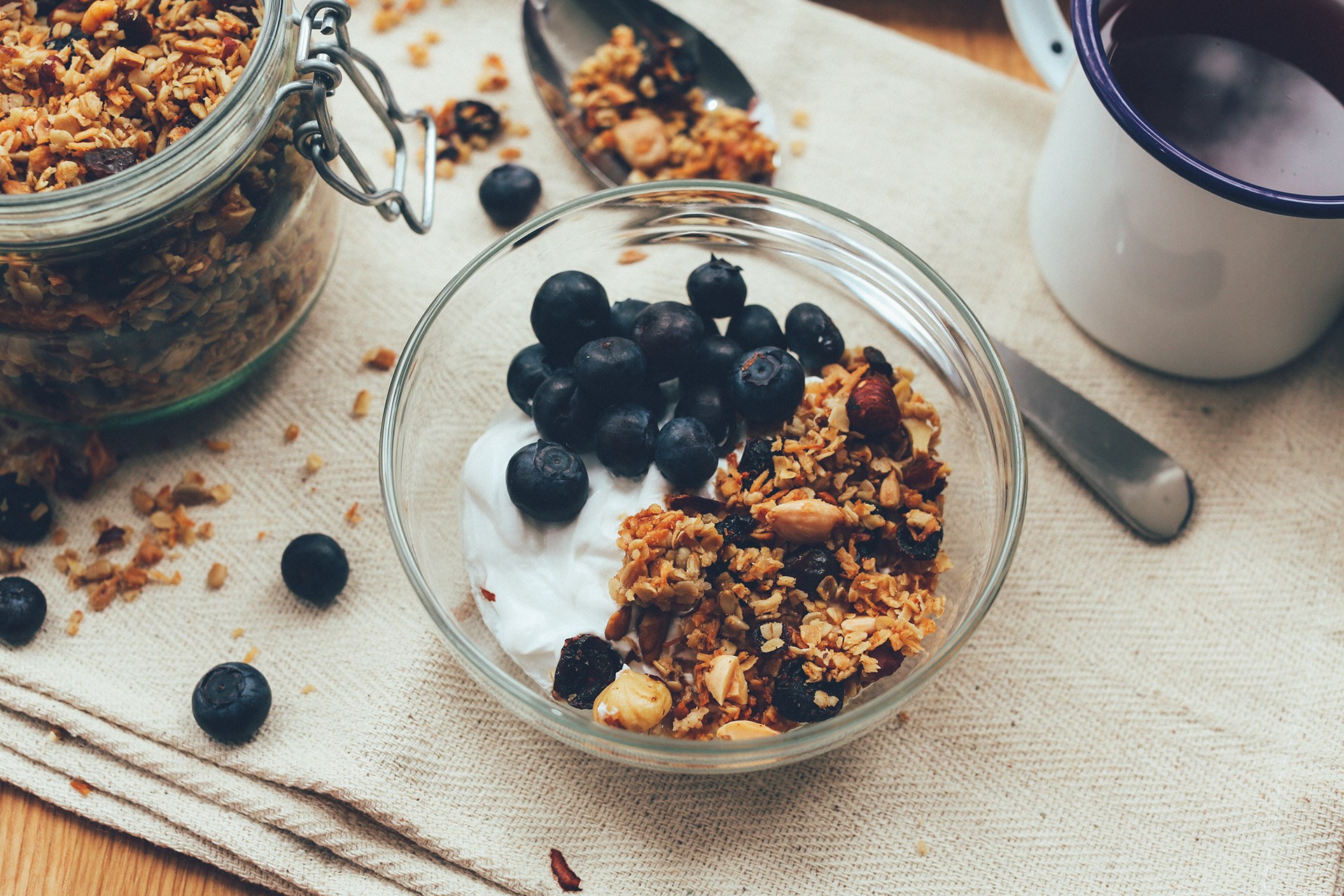
04 Oct The Best 5 Things You Can Put In Your Body to Start Your Day
We’ve always heard the importance of starting the day with a great breakfast… but yet somehow putting this into consistent practice seems to be easier said than done for most. Putting actual food into your body every morning is not only about refueling your energy tank. Eating a high-quality, nutrient-filled breakfast will actually help you perform better at work (and at play) and boost your overall brain health, according to research. An April 2021 study published in the journal Nutrients found that adolescents who ate a nutritious breakfast had a better cognitive performance at school compared with those who didn’t. A small 2016 study in Neuroscience & Medicine showed that specific areas of the brain experienced significantly higher activation when young adult participants consumed a nutritionally balanced breakfast over a sugar-filled one. And a 2019 study published in the Journal of Psychophysiology concluded that skipping breakfast can negatively affect short-term cognition, specifically disturbing the attentional process.
While there is no official time you should eat breakfast, health experts recommend eating within an hour or so of waking up, even if it’s just something small—like yogurt with fruit or a slice of whole-wheat toast with peanut butter. You don’t need a complicated breakfast, but it should include several food groups with nutritious foods. Keep in mind, however, that eating for optimal brain health and cognitive function isn’t just related to your morning meal. It will always be more about the total pattern of what you eat and drink in a day, in a week, and so on, versus any single food. There are some breakfast foods that are better than others to boost cognitive function and overall brain health.
Eggs
Eggs are one of the best brain-friendly foods, too. Easy to cook yet making everything more decadent, an egg contains both choline and lutein, two vital nutrients that help the brain develop in our early years, then protect it against cognitive decline in mid-life, according to a 2018 review of egg benefits published in Journal of the American College of Nutrition.
Oatmeal
There’s a reason that oats are so popular among nutrition experts, though: As a whole grain, they’ve been linked to improved cognitive functioning such as higher reading comprehension and verbal fluency. Moon says she prefers steel-cut oats, which are closer to the whole-food form of oats and offer a pleasantly chewy texture. In a rush in the morning? Try a packaged, protein-rich oatmeal (without all the added sugar) like Mush or Oats Overnight.
Berries
A simple morning meal of plain Greek yogurt topped with fresh strawberries, blueberries, and chopped almonds is a brain-boosting way to start your day, says Amidor. A Journal of Agricultural and Food Chemistry review showed that anthocyanins, the pigment in berries that gives them their rich color, can help protect your brain cells from oxidation and boost communication between brain neurons. If you can’t get your hands on fresh, stock up on Sow Good freeze-dried fruit with the same nutrition and no added ingredients. Freeze-dried fruit can be a lifesaver snack for those traveling, too.
Coffee
You better believe that coffee makes the list (but beware: Drinking too much has the opposite effect). Research suggests that a morning cup of joe (black) sharpens reaction time, improves alertness, and helps us to think more clearly. According to Moon, this is possibly due to the combination of caffeine and antioxidants, as well as coffee’s ability to enhance the brain’s functional connectivity—i.e. how well various regions of the brain talk to each other to complete tasks.
Don’t forget your water
Hydrating with H20 is critical when you wake up to jumpstart your day and your mind. Our brains are almost 75 percent water, meaning even mild dehydration can dull cognitive performance and negatively affect your mood, too.
